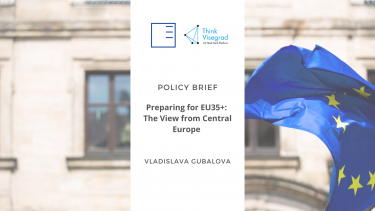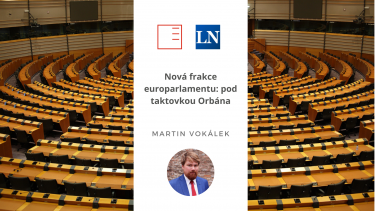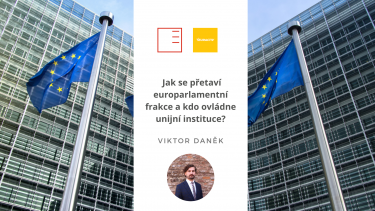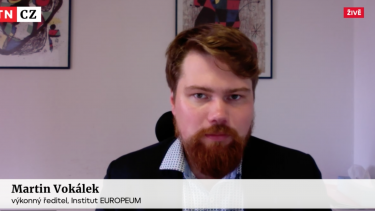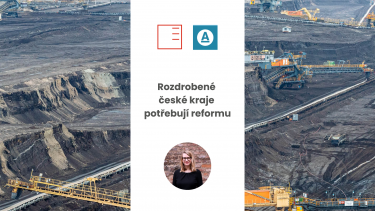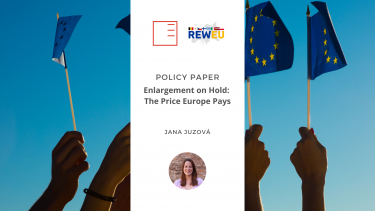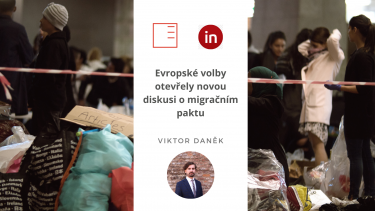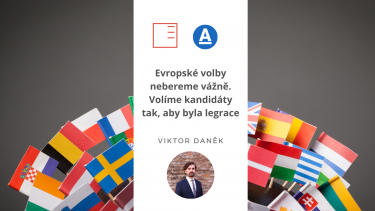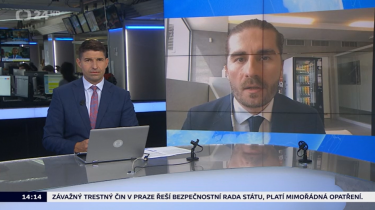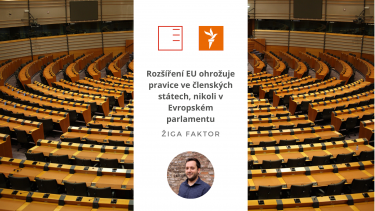Policy Brief | Preparing for EU35+: The View from Central Europe
Despite the historical support of EU enlargement policy by the Visegrad Four (V4), these Central European states are now faced with the challenge of reconciling their stances with the new realities of the process. As Ukraine and Moldova opened their accession negotiations, the EU seems to be torn on the questions associated with the future enlargement(s) - institutional reforms and changes within the EU budget. Transitioning from economic beneficiaries to potential contributors, the V4 states must evaluate the potential political and economic impacts of new members on both the EU and their domestic levels. Writes and proposes recommendations Vladislava Gubalova from GLOBSEC.
Show moreLidovky.cz | New political group in the European Parliament: under the baton of Orbán
Visegrad sovereigntists. This is the name given by European circles to the upcoming new faction of the European Parliament, which is expected to include seven MEPs from the Czech ANO movement. The leader of the Czech opposition, Andrej Babiš, who led his MEPs out of the influential liberal Renew Europe, is working with Hungarian Prime Minister Viktor Orbán to establish the new group. Martin Vokálek, director of EUROPEUM Institute, comments on its formation.
Show more
Euractiv.cz | Post-election reshuffles. How will the European Parliament factions transform and who will dominate the EU institutions?
The key issues for the new term in the EU do not end with the European elections. Forces in European Parliament continue to shift depending on factions, while leaders select institutional leadership. How will the elections and the composition of the European Parliament influence the future functioning of the EU? And who will lead it? Viktor Daněk, Deputy Director of EUROPEUM Institute, answered these questions for Euractiv.cz.
Show moreTN Live | EU has approved further sanctions. They target the Russian industry and energy sector
European Union has approved its fourteenth package of sanctions against Russia, specifically targeting 116 additional individuals. Whom will the new package of sanctions affect the most? How effective have previous packages been so far? Martin Vokálek, Executive Director of EUROPEUM Institute, answered these questions live for TN Live.
Show more
Aktuálně.cz | Fragmented Czech Regions Need Reform
In the autumn, regional council elections will be held. The existence of 14 regions in the Czech Republic, however, does not have a long tradition – they were only established in 2000, partly due to the anticipated entry into the European Union. This arrangement is now heavily criticized for their fragmentation, low and duplicative administrative capacities, and the associated negative impacts on the state budget. Klára Votavová, a researcher at EUROPEUM Institute, presents in her commentary on research on the capacities of the state and regions to draw from the Just Transition Fund, using the examples of the Karlovy Vary and Moravian-Silesian regions.
Show morePolicy Paper | Enlargement on Hold: The Price Europe Pays
How can the EU enlargement process regain its lost momentum? And how can we learn from previous rounds of enlargement? These questions are answered by a group of authors together with EUROPEUM Institute senior researcher Jana Juzová in a new publication within the REWEU project.
Show moreNovinky.cz | The European elections have opened a new debate on the migration pact
After Filip Turek and Kateřina Konečná achieved significant success in the European Parliament elections in the Czech Republic, a debate has arisen about their stance on the migration pact. Turek aims to free himself from its constraints, while Konečná advocates for its complete abolition in its current form. But is this even feasible? Viktor Daněk, deputy director of EUROPEUM Institute, commented this topic for Novinky.cz.
Show moreAktuálně.cz | We don't take European elections seriously. We vote for candidates that would be fun to watch
After the significant success of Filip Turek and Kateřina Konečná in the European Parliament elections, a discussion has emerged regarding their impact on voter turnout and political engagement, potentially shaping political debates and decision-making in the Czech Republic. Viktor Daněk, Deputy Director of EUROPEUM Institute, reflects on their influence on interest in European affairs and potential changes in domestic politics in an interview for the news website Aktuálně.cz.
Show moreČT24 | Political shift after the European Parliament elections and its impact on the future of the EU
After the European Parliament elections, the strongest faction remains the European People's Party, a grouping that includes TOP09, KDU-ČSL and the Mayors and Independents. The Socialists and Democrats are second and Renew Europe, which includes the winning ANO party, is third. How significantly did the elections affect the European Parliament? Viktor Daněk, deputy director of EUROPEUM Institute, commented for ČT24.
Show moreRadio Free Europe | EU Enlargement is threated by the far right parties in Member States, not in the European Parliament
Even thought parties belonging to the far right achieved good results in the European elections, their growth was not enough to have a major impact on politics in the future European Parliament. What developments can we anticipate with regard to the policy of enlargement of the EU after the elections? Žiga Faktor, deputy director and head of EUROPEUM Institute's Brussels office, comments on the situation for Serbia's Radio Free Europe.
Show more
Staroměstské náměstí 4/1
Prague 1 - Staré Město
110 00
tel.: +420 212 246 552
email: europeum@europeum.org
https://www.europeum.org
